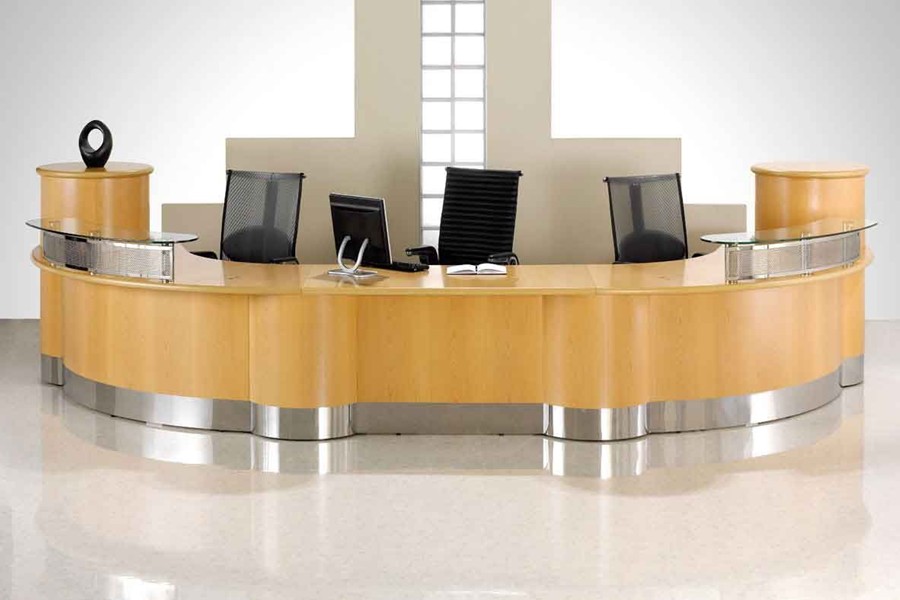By Lil Nickelson
The African American Day Parade (“AADP”) put on its 55th annual parade in Harlem this year on the third Sunday in September.
Continue readingBy Lil Nickelson
The African American Day Parade (“AADP”) put on its 55th annual parade in Harlem this year on the third Sunday in September.
Continue readingIn the world of economics, complex questions are often multidimensional, involving everything from market trends to policy impacts and theoretical models.
Continue reading
Even if a car accident seems minor, there are important steps you need to take right away to protect yourself legally and financially.
Continue reading
Investing in off-plan properties has become popular, especially in fast-growing regions like Ras Al Khaimah.
Continue reading
In the bustling world of current places of work, the workplace cubicle regularly stands as an uncelebrated but imperative feature.
Continue reading
Your home's renovation project is an exciting time, but plumbing mistakes can quickly turn your dream upgrade into a costly nightmare. Whether you're remodeling a bathroom, updating your kitchen, or adding new fixtures, understanding potential plumbing pitfalls can save you from expensive repairs and future headaches.
Many homeowners rush into renovations without proper plumbing knowledge, leading to issues that could have been easily avoided. By being proactive and informed, you can protect your investment and ensure your renovation project's success.
Plumbing mistakes during renovations often start small but can escalate into major problems like water damage, structural issues, or complete system failure. These issues can be particularly devastating because they typically affect both your new renovation work and existing home structures. Understanding the importance of proper plumbing planning helps you:
Proper planning is important because mistakes made in the early stages of a renovation can be difficult and expensive to fix later on. Hiring professional plumber services in Boston can help ensure your renovation project includes correctly sized and properly arranged plumbing systems that will serve your home efficiently for years to come. A licensed plumber will have the experience to handle even the trickiest plumbing tasks, saving you from costly mistakes.
Avoiding common plumbing mistakes is essential for a smooth renovation process and long-term functionality. Poor planning, incorrect installations, and skipping safety measures can result in significant issues down the line. Here are the common mistakes to avoid:
One of the most critical mistakes occurs during the planning phase when homeowners or contractors choose incorrect pipe sizes or create inefficient layouts. Proper pipe sizing ensures adequate water flow and pressure throughout your home, while efficient layout planning prevents future accessibility issues. Common pipe sizing and layout mistakes include:
Understanding proper pipe sizing and layout is essential for both immediate functionality and long-term maintenance.
Building codes exist to protect your safety and ensure proper plumbing system function. Skipping permits or ignoring local codes can result in costly corrections, fines, and potential safety hazards. Common code violations include improper venting, insufficient pipe supports, and unauthorized material use. Always research local requirements and obtain necessary permits before starting your renovation project.
Proper plumbing ventilation prevents sewer gases from entering your home and ensures efficient drainage. Poor ventilation can cause slow drains, gurgling sounds, and unpleasant odors. These issues often result from:
Ensuring proper ventilation during your renovation will prevent these issues and protect your home's air quality. Consider consulting a professional plumber to verify your ventilation system meets all requirements and functions effectively.
As simple as it sounds, forgetting to shut off the water supply before beginning a renovation is a surprisingly common mistake. Failing to do so can result in water spraying everywhere, causing significant water damage and cleanup.
Before removing or replacing any pipes, fixtures, or appliances, always shut off the water at the main valve. Double-check that all taps are closed and that the system is fully drained before proceeding with any work.
During a renovation, it’s easy to get caught up in the excitement of new fixtures and layouts and forget about future maintenance. It’s important to ensure that all plumbing work is accessible for future repairs or maintenance. Placing pipes or valves in hard-to-reach areas can make future repairs difficult and expensive.
When planning your plumbing layout, think about how accessible key areas like shut-off valves, water heaters, and major pipe connections will be. Make sure that future maintenance tasks can be performed without tearing apart your newly renovated space.
After your plumbing work is complete, it’s necessary to check for leaks before finishing your renovation. Leaks can cause extensive damage if left unchecked, leading to costly repairs and potential mold growth.
Perform a thorough inspection of all new plumbing to ensure that no leaks are present. If possible, run water through the system to test for any leaks or pressure drops. Catching a leak early can save you from future headaches.
Thorough planning is key to a smooth plumbing renovation. Here are some of the essential steps to take for successful plumbing renovation:
Before starting any renovation work, conduct a thorough evaluation of your existing plumbing system. Check current water pressure levels, document pipe locations, and identify potential problem areas. This assessment helps you:
Taking time for proper assessment can prevent costly mistakes and ensure your renovation plan addresses all necessary improvements. Remember that understanding your current system is the first step toward successful renovation.
Choosing the right materials for your plumbing renovation is essential for long-term success. Different pipe materials have specific advantages and limitations. Consider factors like:
Each material choice impacts your project's durability and performance. Take time to research options and consult with professionals about the best materials for your specific needs and local conditions.
Complex plumbing tasks, such as gas line installations, main water connections, or significant system modifications, demand professional expertise and certification. Qualified plumbers bring invaluable assets to your renovation, including technical expertise, code knowledge, specialized tools, and safety awareness, ensuring quality assurance.
Their experience prevents costly mistakes, guarantees compliance with regulations, and provides peace of mind, safeguarding your investment and household's safety.
Renovating your home is exciting, but plumbing mistakes can quickly turn your dream project into a nightmare. By planning ahead, working with professionals, and paying attention to the details, you can avoid common plumbing mistakes and ensure that your renovation is a success. Always prioritize proper plumbing to protect your home from future issues and enjoy your new space without worry.
Whether you're downsizing, moving, or just decluttering, renting a storage unit can be a practical solution for managing your space and belongings.
Continue readingIn the fast-paced and competitive business environment of Dubai, maintaining accurate financial records is critical to a company’s success.
Continue readingIn today's fast-paced world, the concept of giving has expanded far beyond financial or material generosity.
Continue readingA sump pump plays a significant role in keeping your basement dry by removing excess water that could lead to flooding.
Continue reading
A submitting cabinet is a vital piece of place of business furnishings used for the systematic commercial enterprise agency, garage, and clean retrieval of documents, documents, and office work.
Continue reading